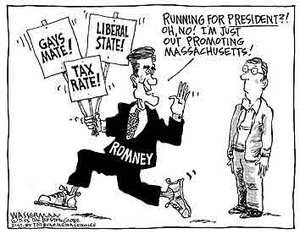
The
Petrograd Soviet, or Petrograd
Soviet of Workers' and Soldiers' Deputies, was the council set up in Petrograd (
Saint Petersburg, Russia) in March 1917 as the representative body of the city's workers.
A workers' soviet had been created in St. Petersburg in 1905, see
St. Petersburg Soviet. But the precursor to the 1917 Soviet was the Central Workers' Group (
Tsentral'naya Rabochaya Grupa —
Центральная Рабочая Група), founded in November 1915 by the
Mensheviks to sit between workers and the new Central Military-Industrial Committee in Petrograd. The group became increasingly radical as the war progressed and the economic situation became worse – encouraging street demonstrations and issuing 'revolutionary' proclamations.
The Ispolkom Existing as an alternate source of authority to
Prince Lvov's
Provisional Government created a situation described as
dvoevlastie (dyarchy or
dual power) which lasted from March until the
October Revolution. The
Ispolkom often publicly attacked the 'bourgeois' Government and boasted of its
de facto power over
de jure authority (to use a later quote from Trotsky) – it had control over post and telegraphs, the press, railroads, food supply, etc. A 'shadow government' with a Contact Commission (created March 8) to "inform... [the Provisional Government] about the demands of the revolutionary people, to exert pressure on the government to satisfy all these demands, and to exercise uninterrupted control over their implementation." On
March 19 the control extended into the military front-lines with commissars appointed, with Ministry of War support.
The
Ispolkom expanded to nineteen members on
April 8, nine representing the Soldiers' Section and ten the Workers' Section. All members were socialists, the majority Mensheviks or
SRs, there were no
Bolshevik. After the All-Russian Consultation of Soviets, the Petrograd Soviet began adding representatives from other parts of the nation and the front-lines, renaming itself the All-Russian Soviet of Workers' and Soldiers' Deputies. The committee became the All-Russian Central Executive Committee (CEC or VTsIK) with over seventy members – including no peasant representatives. The mass meeting of the entire body were tapered off, being reduced from daily in the first weeks to roughly weekly by April.
 Riots and street protests
Riots and street protests The Bolsheviks rapidly assumed the mantle of the 'official' opposition, while the socialist groups in cabinet could now be attacked for the failures of the Provisional Government. The Bolsheviks began a strong run of propaganda – in June 100,000 copies of
Pravda (including
Soldatskaya Pravda,
Golos Pravdy, and
Okopnaya Pravda) were printed daily. In July over 350,000 leaflets were distributed. The Bolsheviks attempted another uprising on
July 3–
July 5 – a further wave of riots without success.
The rise of Kerensky, and the later shock of the
Kornilov Affair, polarized the political scene. The Petrograd Soviet moved steadily leftwards just as those of the centre and right consolidated around Kerensky. Despite the events in July the
Ispolkom moved to protect the Bolsheviks from serious consequences, adopting resolutions on
August 4 and
August 18 against the arrest and prosecution of Bolsheviks. Still leery of the
Ispolkom the government released many senior Bolsheviks on bail or promise of good behaviour.
In the
August 20 municipal elections the Bolsheviks took a third of the votes, a fifty percent increase in three months. There was also a general falling away in the attendance of soviet meetings, indeed many of the smaller soviets no longer existed except on paper.
During the Kornilov Affair the
Ispolkom was forced to use the Bolshevik's Military Organization as its main force against the "counter-revolution." Kerensky ordered the distribution of 40,000 rifles to the workers of Petrograd, many of which ended in the hands of Bolshevik groups.
As other socialist parties abandoned the Soviet organizations, the Bolsheviks increased their presence. On
September 25 they gained a majority in the Workers' Section and
Leon Trotsky was elected chairman. He directed the transformation of the Soviet into an adjunct of the party, bypassing the Menshevik-SR
Ispolkom and non-Bolshevik soviets to form a new Bolshevik control structure.
The Bolsheviks used their power in the Petrograd Soviet to set-up a
2nd All-Russian Congress of Soviets on
October 20 (agreed
September 26), despite only eight of 169 soldiers' or workers' soviets expressing support. With elections to the Constituent Assembly looming the Bolsheviks had to use their power quickly to discredit the elections. The
Ispolkom denounced the Congress and the steps the Bolsheviks were taking to create its delegates. Suddenly and without reason, on
October 17, the
Ispolkom Bureau approved the Congress.
 Quotes
Quotes
 Liberty roof sculpture by Charles Gumery
Liberty roof sculpture by Charles Gumery
 Geography
Geography
 Background
Background Prelude
Prelude The stag hunt and social cooperation
The stag hunt and social cooperation
 Riots and street protests
Riots and street protests October
October September - December
September - December